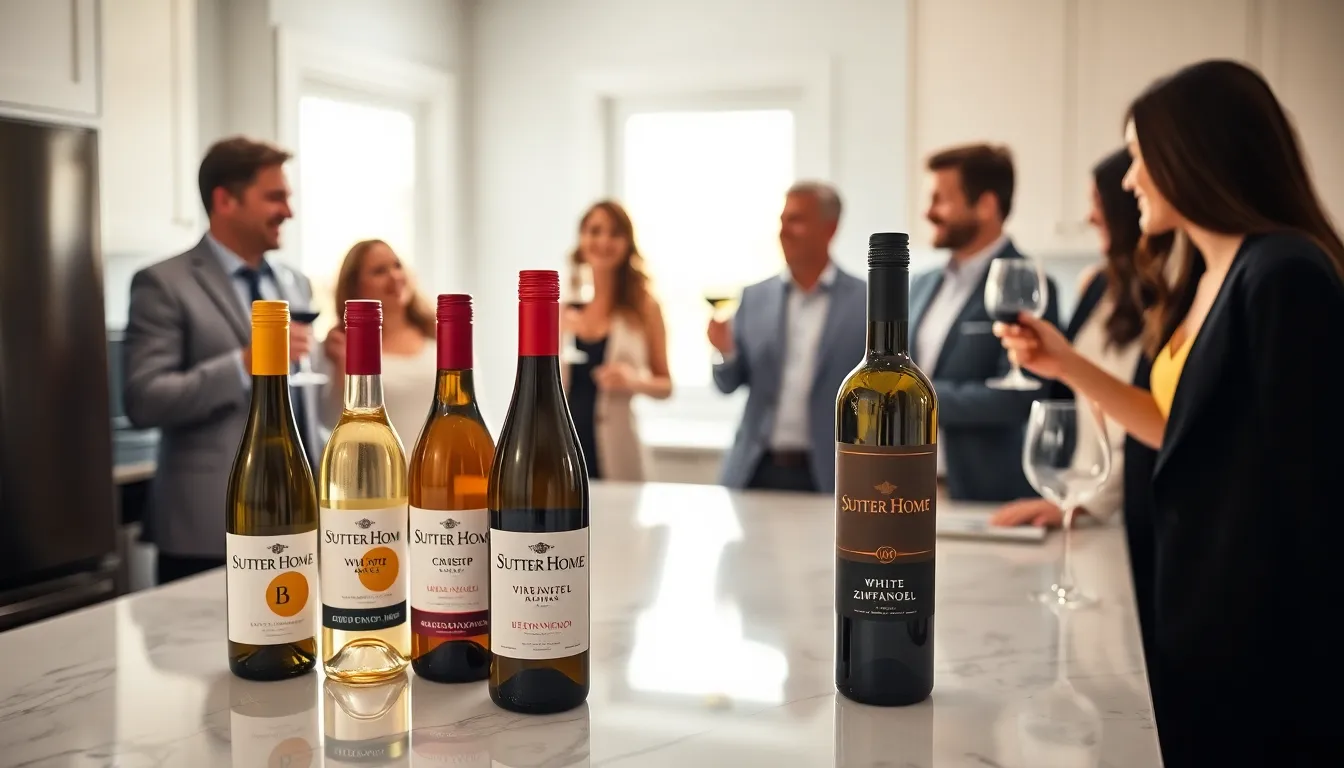
So you’re at a gathering, pondering if that chilled Sutter Home wine will take you from sober to tipsy. Is it a magic elixir or just grape juice with a kick? Fear not. This isn’t one of those sketchy bars where the drinks hit you when you least expect it. We’re diving into the nitty-gritty of Sutter Home’s alcohol content, those sneaky factors that influence your buzz, and whether you need to rethink your relationship with the bottle (or at least the label). Let’s get to it.
Does Sutter Home Get You Drunk

Sutter Home wines come with different alcohol by volume (ABV) percentages, typically ranging from 9% to 12.5%. That’s akin to having a glass of wine with a bounce. For comparison, most beers hover around 5% ABV. This simple math suggests that yes, Sutter Home can get you drunk, especially if you enjoy a few glasses. But it’s not just about the numbers.
When sipping on a crisp White Zinfandel or a rich Merlot, the effect largely depends on how much you drink over a specific time frame. If you’re racing through your glasses, it’s easy to lose track, and before you know it, you might start to feel the effects kicking in. But go slow, savor the taste, and the buzz might just be a gentle slope instead of a steep hill.
The Factors That Influence Intoxication
Intoxication is a complex dance influenced by various factors other than just the alcohol content. First off, consider your body weight. Heavier individuals often metabolize alcohol differently, needing more to feel its effects. Then there’s your gender. Typically, women may feel the effects of alcohol faster than men due to physiological differences in body composition.
Next, let’s talk about food. Eating before or while drinking can slow alcohol absorption, which means those late-night nachos can actually save you from a quick descent into drunkenness. Hydration plays a role too, everyone knows to drink water between those glasses of Sutter Home. Finally, your overall tolerance, which varies dramatically from person to person and even changes with time, can greatly affect your experience.
Comparing Sutter Home to Other Wines
When it comes to Sutter Home versus other wines, the buzz you might experience is often comparable. For instance, renowned brands like Barefoot or Franzia also have ABV percentages within the same range. But, differences in sweetness and wine composition can lead to different drinking experiences.
Sutter Home’s White Zinfandel is known for its delightful sweetness, making it incredibly drinkable. This means it’s easy to underestimate how quickly the alcohol can catch up with you. Meanwhile, a drier red might encourage slower sipping. Eventually, it’s not just about the ABV: it’s about the enjoyment of each sip. Pair it with friends, good food, and laughter, and you might find yourself having a fun evening while keeping a rein on that alcohol awareness.
Personal Tolerance and Drinking Responsibly
Understanding personal tolerance to alcohol is paramount. What may get one person buzzed could leave another unfazed. This individual variability is why responsible drinking is so vital.
For those new to wine, starting with one glass of Sutter Home can help gauge how it affects you. It’s like dipping your toes into a pool of deliciousness before deciding to immerse. Keeping track of your drink count and taking breaks can help maintain a fun, safe environment. Remember, the goal is to enjoy, not overindulge. You want to savor the notes of cherries or whatever tantalizing flavor that particular bottle offers, not just to race your friends to Tipsyville.
Myths and Misconceptions About Wine and Intoxication
There are a lot of myths swirling around wine, and intoxication is no exception. One prevalent belief is that “wine makes you more intoxicated than beer or liquor.” This is misleading. Because wines can have a higher ABV than many beers, it can lead to quicker intoxication if consumed in the same volume, but that’s all about context.
Another popular myth is that sweet wines magically result in worse hangovers. While sugar can play a role in how you feel the next day, hangovers are primarily caused by dehydration and the presence of congeners, resulting from fermentation. So whether you’re drinking a sweet Merlot or a dry Cabernet, moderation is key to avoiding that Sunday morning regret.



